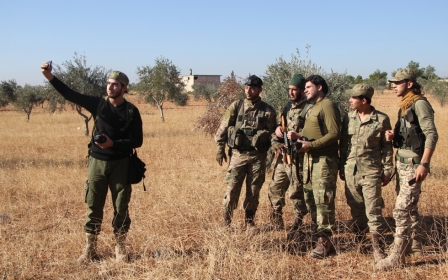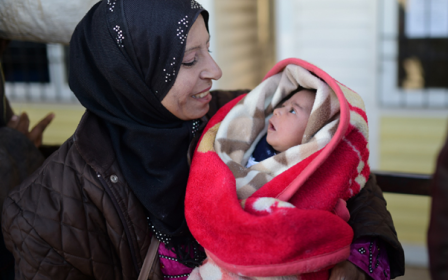Russian 12-hour ceasefire in effect in east Aleppo
A Russian-declared ceasefire for opposition-held areas of Syria's second city Aleppo took effect on Friday, but hopes were low that civilians or rebels would heed calls to leave.
Damascus ally Moscow said the 10-hour "humanitarian pause" was an attempt to "prevent senseless casualties".
But a similar, three-day pause last month ended with only a handful of people leaving the besieged rebel-held east of the city, and there was little sign many more would do so during Friday's brief ceasefire.
Once Syria's economic powerhouse, Aleppo has been devastated by fighting since the rebels seized the east of the city in 2012, turning its historic heart into a battlefield.
The army cut the last supply route from other rebel-held territory in July, leaving the more than 250,000 civilians still living in the east without access to deliveries of basic goods.
The rebels launched a bid to break the siege last week, which they stepped up on Thursday.
Rocket fire on government-held districts killed at least 12 people, state media said.
The rebels captured the Dahiyet al-Assad area and the village of Minyan outside west Aleppo, the Syrian Observatory for Human Rights said.
The latest deaths brought to nearly 70 the number of civilians killed in government-held areas since the rebel offensive began, the Britain-based monitoring group said.
An AFP correspondent in east Aleppo said the front lines were quiet on Friday morning after fighting halted during the night.
Moscow says the Syrian army has opened eight crossings on the front line for civilians to leave. Two of them can also be used by surrendering rebel fighters.
The Russian defence ministry posted what it said were live feeds from three of the crossings.
One showed barrels painted with the Syrian flag next to a large photograph of President Bashar al-Assad propped up by sandbags.
Another showed waiting ambulances while the third - which appeared to be filmed from a drone - showed a line of green coaches.
But expectations were low that civilians or rebel fighters would take the opportunity to leave.
Civilians in the east, who have faced weeks of devastating bombardment by the government and its Russian ally, have expressed scepticism about the promises of safe passage.
Moscow and Damascus accuse the rebels of preventing residents from leaving.
The rebels dismissed the latest ceasefire as a ploy by Moscow to deflect international criticism of the high civilian death toll from its bombing campaign.
"This announcement is worthless... We don't trust the Russians or any of their cheap initiatives," said Yasser al-Youssef, a politburo member of the Nureddin al-Zinki rebel brigade in Aleppo.
The United Nations said it would not be attempting any medical evacuations from the rebel-held sector during Friday's ceasefire.
UN agencies tried but failed to organise evacuation convoys during last month's pause.
"The UN will not be involved in any way in the evacuation of civilians from east Aleppo related to this announcement," said David Swanson, a spokesman for the UN humanitarian office.
"Medical evacuations can only take place if parties to the conflict take all the necessary measures to provide an enabling environment, which hasn't happened," he told AFP.
"We remain very, very concerned about the humanitarian situation in east Aleppo. There have been no humanitarian supplies reaching the east of the city since early July."
Hundreds of people have been killed in the rebel-held sector since the army launched an offensive to recapture it in September.
The death toll has drawn international condemnation of both Damascus and Moscow. The European Union said Russian actions "may amount to war crimes".
More than 300,000 people have been killed in Syria since the conflict erupted with anti-government protests in March 2011
New MEE newsletter: Jerusalem Dispatch
Sign up to get the latest insights and analysis on Israel-Palestine, alongside Turkey Unpacked and other MEE newsletters
Middle East Eye delivers independent and unrivalled coverage and analysis of the Middle East, North Africa and beyond. To learn more about republishing this content and the associated fees, please fill out this form. More about MEE can be found here.




